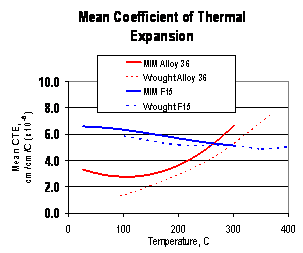Metal Injection Molding Materials
Request a Quote
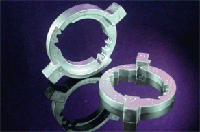
- Steel (4600, case carburized)
- Stainless Steel (17-4PH, 316L, Duplex, 430L, 440C)
- Soft Magnetic (Fe-3Si, 50Ni-50Fe, 430L)
- Controlled Expansion (Invar, Kovar, Alloy 36)
- Tool Steel (M2, T15, D2)
- Nickel
MIM Materials Overview
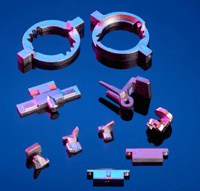 MIM 2200 Steel
MIM 2200 Steel
Applications in Automotive Systems:
- Lock Plate for Headrest Adjuster in Seating System
- Stop Cam in Sun Roof System
- Sidebar in ignition lock
- Actuator in steering column
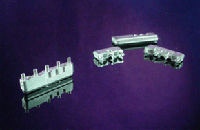 MIM Duplex Stainless Steel
MIM Duplex Stainless Steel
Applications in High Security Locks:
- 3-Pin, 4-Pin, and 5-Pin Sidebars
- Retainer Plug
- Cylinder Case
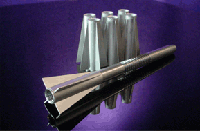
- MIM 17-4PH Stainless Steel
- Ordnance Application – Stabilizer Fin
- Lock Application – Cylinder Bolt
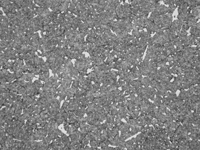
- MIM 440C Stainless Steel
- Fine, well-distributed carbides in a martensitic matrix provides high strength and hardness with excellent wear resistance
- Processed to full density to compete directly with wrought and cast material
- MIM F15 (trade name “Kovar”)
- MIM Alloy 36 (trade name “Invar”)
- MIM Alloy 42
- Commonly used for glass-to-metal seals
MIM Controlled Thermal Expansion Alloys
MIM Stainless Steel
| GRADE | TYPE | DESCRIPTION | APPLICATIONS |
|---|---|---|---|
| MIM 430L | Ferritic | Magnetic stainless steel with resistance to atmospheric corrosion and general oxidation. Lower cost than nickel-containing austenitic stainless steels. | Sensors, armatures, and pole pieces that require some resistance to corrosion |
| MIM 316L | Austenitic | Non-magnetic stainless steel with excellent corrosion resistance, toughness, and ductility | Medical and dental devices, marine components, and non-magnetic housings |
| MIM Duplex | Duplex (Ferritic/Austenitic) |
Weakly magnetic stainless steel providing a mix of properties between the austenitic and ferritic grades | Lock components |
| 17-4PH | Precipitation Hardening | Provides an excellent combination of strength, hardness, and corrosion resistance | Ordnance components, high strength fasteners, fiber optic connectors, and medical devices |
| MIM 440C | Martensitic | Provides high strength, hardness, and resistance to wear with moderate resistance to corrosion | Wear plates, fuel injection nozzles, and cutting instruments. |
MIM Low Alloy Steel
| GRADE | TYPE | DESCRIPTION | APPLICATIONS |
|---|---|---|---|
| MIM 2200 | Low Carbon Nickel-Steel | Provides outstanding toughness and ductility; carburized surface provides an excellent wear surface with a tough core | Lubricated safety and security devices, automotive interior components, and coated or plated hardware |
Soft Magnetic Alloys
| GRADE | TYPE | DESCRIPTION | APPLICATIONS |
|---|---|---|---|
| MIM Fe | Iron | Provides high magnetic induction for DC applications where low coercive force and high permeability are not required | Pole pieces, sensor probes, and solenoid end caps |
| MIM 3Si | Silicon-Iron | Provides higher permeability and lower coercive force compared to iron | Solenoid switches, armatures, pole pieces, and relays |
| MIM 50Ni | Nickel-Iron | Provides higher permeability and reduced coercive force compared to 3Si, at the expense of magnetic induction | Pole pieces, cores, and relays |
| MIM 430L | Ferritic | Combines good magnetic output with corrosion resistance | Magnetic probes, sensors, armatures, and pole pieces |
Low Expansion Alloys
| GRADE | TYPE | DESCRIPTION | APPLICATIONS |
|---|---|---|---|
| MIM F15 |
Fe-28Ni-18Co | F15 (trade name Kovar) provides a low and consistent coefficient of linear expansion up to 750 °F (400 °C) | Commonly used when glass-to-metal seals are required |
| MIM Alloy 36 | Fe-36Ni | Alloy 36 (trade name Invar) provides a very low coefficient of linear expansion up to 300 °F (150 °C) | Commonly used when glass-to-metal seals are required |
| MIM Alloy 42 | Fe-42Ni | Alloy 42 provides a low and consistent coefficient of linear expansion up to 575 F (300 °C) | Commonly used when glass-to-metal seals are required |
Custom Blends
Jiangsu Tech realizes that our customers' needs are as various as the alloys the PM process can provide. Our R&D center and engineering staff enjoys assisting customers who require special materials for specific applications.
